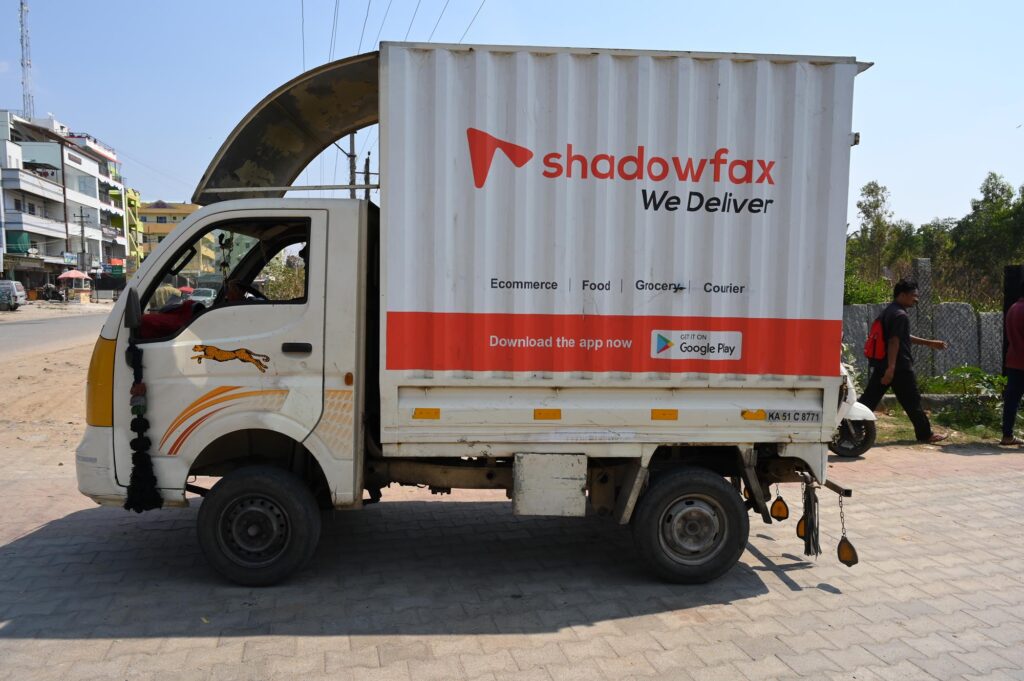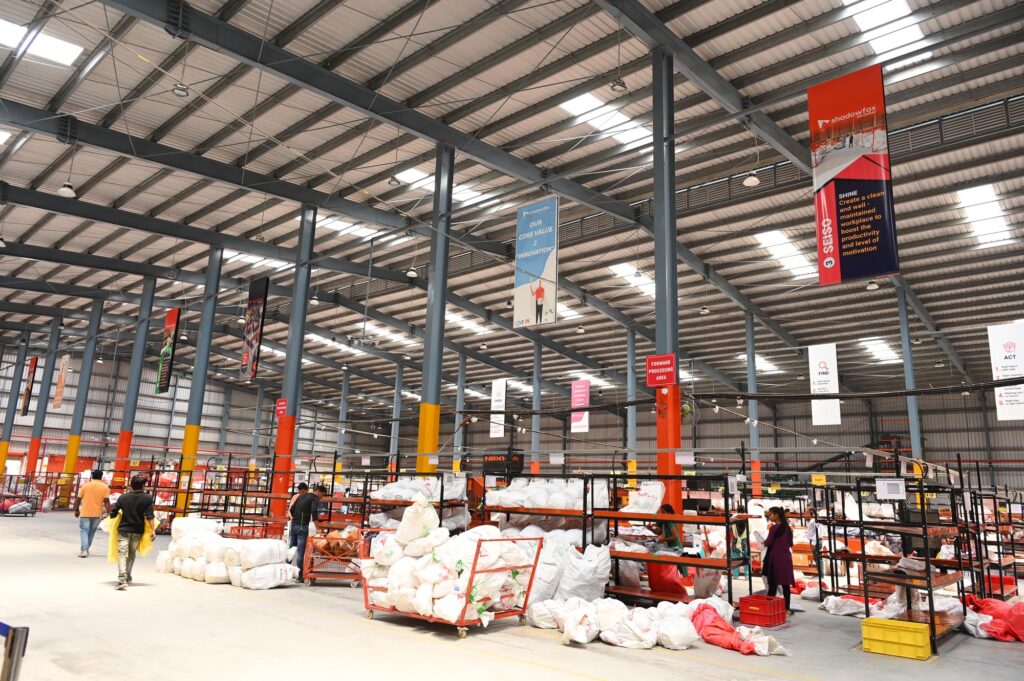
In the rapidly evolving landscape of e-commerce and logistics in India, Shadowfax has emerged as a key player, offering innovative solutions to address the unique challenges of last-mile delivery. In an interview with N. Balasubramanian and Subadra Anand, the company’s co-founder and CTO Vaibhav Khandelwal provides insights into Shadowfax’s journey, its technological innovations, and its vision for the future of logistics in India.
Founded in 2015, Shadowfax began with a simple hypothesis: while food delivery platforms were gaining traction, restaurants struggled to scale their delivery capabilities to meet growing demand. Recognizing this gap, the founders saw an opportunity to create a horizontal logistics platform that could serve multiple industries beyond just food delivery. From its initial focus on restaurant deliveries, Shadowfax has expanded into various segments, including grocery, e-commerce, and reverse logistics.
“The company’s growth strategy has been driven by its ability to adapt to changing market needs and its focus on building a versatile delivery network”, says Vaibhav Khandelwal, Co-founder and CTO, Shadowfax.
One of Shadowfax’s key differentiators is its B2B2C (business-to-business-to-consumer) model. While the company primarily serves businesses, it has a direct impact on the end consumer’s experience. This approach allows Shadowfax to influence customer satisfaction while working with a diverse range of clients, from large e-commerce platforms to small D2C (direct-to-consumer) brands.
“Our B2B2C model allows us to be the invisible backbone of e-commerce, ensuring smooth operations for businesses while directly impacting consumer satisfaction,” Vaibhav explains.

The company’s service portfolio is broadly divided into two categories: point-to-point deliveries and hub-and-spoke models. Point-to-point services cater to sectors like food delivery, quick commerce, and grocery, where items are picked up from one location and delivered directly to the customer. The hub-and-spoke model handles inter-city e-commerce shipments, managing both forward and reverse logistics. Shadowfax has also made significant strides in critical logistics, handling high-value shipments for companies like Samsung and Vivo. This diversification has allowed the company to capture a significant market share, with the CTO stating that Shadowfax now holds about 20% wallet share in the overall market, with higher percentages in specific segments where they are market leaders.
Addressing India’s Unique Challenges
Technology plays a crucial role in Shadowfax’s operations and competitive advantage. The company has invested heavily in developing proprietary solutions to address India-specific challenges. One of their most notable innovations is SF Maps, a geocoding engine designed to solve the problem of inconsistent and often inaccurate addressing systems in India.

“SF Maps is our answer to India’s unique addressing challenges. It’s not just about pinpointing locations; it’s about understanding the context of addresses in a country as diverse as ours,” the CTO proudly states.
SF Maps uses machine learning algorithms and artificial neural networks to create embeddings of addresses and map them to specific locations. This technology allows Shadowfax to accurately pinpoint delivery locations even when pin codes are incorrect or addresses are poorly formatted. The system leverages data from over 1.5 billion deliveries to continually improve its accuracy. The company plans to open-source SF Maps, making it available to other startups and researchers. This move aims to solve a fundamental problem in Indian logistics and e-commerce, potentially accelerating innovation across the industry.
Shadowfax’s technology stack also includes open-source mapping platforms like OSRM and OSM, which have allowed the company to build complex routing engines without relying on expensive services like Google Maps. The CTO emphasized the significant cost savings and flexibility this approach provides.
In terms of fleet management, Shadowfax has evolved from requiring delivery partners to own their vehicles to offering a more inclusive model. The company now provides electric bikes on a rental basis, allowing more people to become delivery partners. This shift has not only expanded their supply base but also aligns with sustainability goals. “By offering electric bikes on a rental basis, we’re not just expanding our fleet; we’re creating opportunities and promoting sustainability simultaneously,” he notes.
Strategic Plans for Nationwide Coverage
Looking ahead, Shadowfax sees significant opportunities in the growing demand for faster deliveries. The company is positioning itself to lead in express delivery models, leveraging its agility and technological capabilities to outpace incumbent players. Another key focus area is the D2C segment. As more brands build direct relationships with consumers, Shadowfax aims to be the go-to logistics partner for these companies. Vaibhav emphasized the importance of customer experience in this segment, highlighting Shadowfax’s strengths in areas like same-day delivery and zero-call deliveries.
However, the company also faces challenges. Building and maintaining a reliable supply of delivery partners in a sustainable manner remains an ongoing focus. Additionally, balancing the human element of logistics with the high-growth expectations of a technology company presents a unique challenge. Shadowfax is addressing this by developing products and solutions that can influence ground-level behavior and enable scalability.
In terms of future plans, Shadowfax aims to become the first-choice partner for D2C brands and to expand its reach to every corner of India. The company is on track to service all pin codes offered by India Post within the current financial year, a significant milestone in its expansion plans.
“The logistics industry in India is at an interesting juncture, with consumers increasingly valuing convenience and speed over cost alone. This shift aligns well with Shadowfax’s focus on customer experience and its investments in technology to enable faster, more reliable deliveries”, shares Vaibhav.
As the e-commerce landscape in India continues to evolve, with new models like quick commerce gaining traction, Shadowfax is well-positioned to play a pivotal role. The company’s journey from a food delivery logistics provider to a comprehensive last-mile delivery platform reflects the dynamic nature of the Indian market and the opportunities it presents for innovative companies. “Our journey reflects the dynamism of India’s e-commerce sector. We’ve grown alongside it, adapting and innovating at every step,” he reflects.
To sum up, with its strong technological foundation, focus on customer experience, and ambitious expansion plans, Shadowfax is poised to continue its growth trajectory. As it approaches its tenth anniversary, the company stands as a testament to the power of identifying market gaps and leveraging technology to create scalable solutions in the logistics sector. As India’s e-commerce market matures and consumer expectations evolve, companies like Shadowfax will play a crucial role in shaping the future of retail and logistics in the country. By addressing India-specific challenges and continuously innovating, Shadowfax is not just participating in the e-commerce revolution – it’s helping to drive it forward.